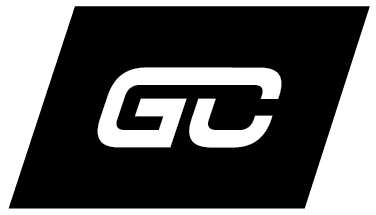Crossing the Athlete Development Chasm
An interesting challenge in the athlete development space is dealing with organizational duality. Simply, stated this is the difference between what organizations or athletic departments say related to how they value and understand their responsibility to the athletes under their purview, versus what they do.
Frequently there is a massive gulf.
Many individuals within organizations talk a fantastic game. They claim to understand the importance of ensuring access to highly applied athlete development services, the value to the individual athlete, as well as the long-term value which can accrue to the organization and more importantly how these services can have positive impacts on communities and families.
On the whole, they probably believe what they are saying. And let’s be honest, not too many people are going to sit in a room and down mouth what on the face of it, seems to be as positive as motherhood and apple pie. You’d be perceived as an asshole.
However, hands get tight on pens and apple pies get kicked out open windows when it comes time to do the following:
Provide meaningful budgets
Provide consistent and regular access to athletes
Provide realistic time frames for programs to be executed
Provide access to key decision makers or influential organizational figures (e.g. coaches)
Allow for meaningful data collection
Ensure base levels of athlete confidentiality
Provide information and/or content to athletes
Addressing topics related to performance on the playing surface (more on this shortly)
The reasons for these discrepancies can be both benign and malign.
Sometimes, it is simple as the primary point person the project thinks they understand athlete development and the nuances of the field. Typically they don’t and simply need further explanation or education. Sometimes people listen, sometimes they don’t. If they don’t, typically it is because athlete development initiatives can be seen as territorial threats or a counter influence to existing cultural norms, which are in turn seen as threats to performance or in uglier scenarios a new voice in the athlete's ear. Sports psychologists, recently hired coaches, communications staff and agents are notorious for viewing athlete development as a threat.
However, my personal favourite remains organizations, departments or even individual athletes who likely fully grasp the full value of engaging in athlete development interventions but refuse to actually meaningfully fund it. Organizations with athletes making eight figures per year are shocked and horrified at the idea of spending four figures a year to really understand the behavioural drivers of that athlete and how to help that athlete engage properly outside his sport. They want the credit for appearing to care but aren’t really willing to fund it in a way to make a difference.
Organizations who are literally dedicated to the development of young athletes and helping them launch not only into the upper echelons of sport but into non-sport careers and lives remain disinclined to support athlete development initiatives. They typically fall into this same trap. Granted, they aren’t managing athletes earning millions, but they are managing the futures of young men and women whose lives are controlled by coaches building careers on a win now mantra.
So why this cognitive dissonance? In my view, it comes down to inertia. Athlete development has been practiced for at least two decades as something that is separate and distinct from performance; it is a distraction, it is soft, a nuisance, a time suck, a direct and negative influence on performance.
However, as you’ve likely read here on multiple occasions, that is the equivalent of arguing that 2+2=3, red is, in fact, blue and that mint dark chocolate M&M’s are really protein nuggets. It is not true and the research is continuing to bear this out. Therefore you are either being willfully ignorant about athlete development or you and/or your organization don’t care about your athletes.
Athlete development is a performance tool. It can be used to enhance performance and drive a development culture based on a personal growth mindset. Organizations evaluating the implementation of athlete development services need to ask themselves the following questions:
What outcomes do I really want?
Am I checking a box or am I funding a tool for competitive advantage?
Do I really want to understand what is happening in my organization and make decisions based on data?
Am I/Are we ok getting bad news?
Does performance matter to my athletes and/or my organization?
Do I/we want to win?
Game Change was founded in 2011 to serve and enhance the athlete development needs of major professional and elite sport organizations and athletes. Game Change specializes in customized research and assessment services, the development of applied interventions and resources designed to provide long-term positive outcomes for organizations and individual athletes. Game Change believes strongly in sport as a catalyst for societal change and adheres to the philosophy of ‘changing the world one athlete at a time’.


